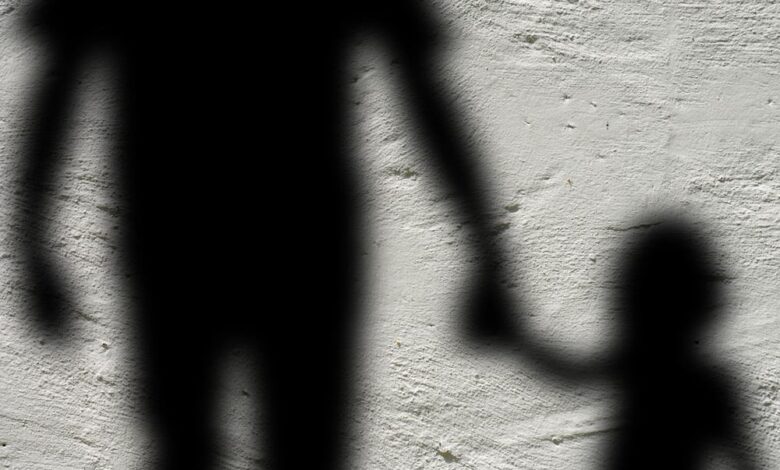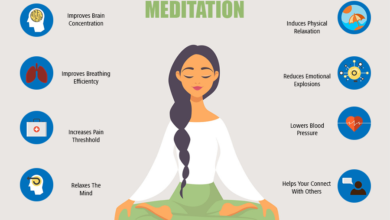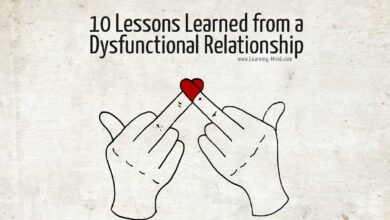
The Cycle of Abuse: Why Victims End Up Becoming Abusers
Breaking the cycle of abuse is one of the primary objectives of preventing abuse, but we must know what causes this pattern. How do victims resort to victimizing others?
Abuse can happen in a short period, or it can go on for years. Either way, it’s unfair. And sometimes, it’s difficult to differentiate the victim from the abuser. But the point here is to understand why victims become abusers later in life.
Why does the pattern continue?
Healing from abuse, whether physical, emotional, or other forms, takes strength and perseverance. And it’s easier than you think to adopt negative characteristics from the abuser. Let’s look at why victims sometimes end up becoming abusers.
1. Unhealthy ideas of love
Many people who are abused as children, and for long periods of time, have an unhealthy view of love. If you’ve endured physical abuse in the name of love, then it’s common to have a skewed view of love in adulthood.
Relationships often set the stage for physical and emotional abuse. If your parents were physically abusive, then it may seem normal if your mate is also physically abusive.
And if you find all this normal, you may become abusive to your children in this manner, thus continuing the cycle of abuse based on your idea of love.
2. Defensiveness
Abuse has a way of creating timidity, but then when you grow stronger, you may develop a defensive attitude. Again, looking at relationships and abuse can shed light on how defensiveness grows from earlier submissive behavior.
During abuse, fear can make you humble. But after escaping from abusive situations, you may develop a rough exterior. When entering into a healthy relationship, you could become abusive to your mate out of fear.
Instead of waiting for the next abuse to occur, you’re already angry and frustrated. You become the abuser.
3. Mistrust
Most times, abuse includes being lied to by friends, family, or coworkers. As an adult survivor of abuse, you may struggle with trust.
Sometimes this mistrust manifests in the inability to believe the kind statements of others. You’ve experienced such harsh emotional abuse that you always think there is an insidious motive behind the nice things that people say. While sometimes compliments are indeed empty, not all of them are.
However, abuse victims have trouble telling the difference, and over time, they develop mistrust and can exhibit abusive behavior in response.
Statistics show that half the people suffering from abuse will also experience domestic violence in relationships later on.
4. Stuck in victim mentality
Victims of abuse can become stuck in a victim mentality if they have trouble healing. Although they were abused in the past, their feelings of being wronged by the abuser can turn into entitlement.
When you feel entitled as an adult, you can start using this entitlement to get what you want — you use manipulation. And as we know, manipulation is a behavior seen in cases of emotional abuse. Thus, the victim becomes the abuser, and the cycle continues.
5. Normalizing negative reactions
One of the other ways that victims can become abusers is by normalizing behaviors like negative reactions. Some families that experienced verbal abuse will continue using the same verbal use and call it a solution to normal reaction or successful parenting.
If you are yelling at your child all the time because that’s how your parents raised you, then you’re continuing the abusive pattern. You may even normalize overreactions when your parents and grandparents used this behavior.
But it is not normal to overreact or scream during confrontations. In fact, it is damaging.
6. False justification
Abuse of any kind can be falsely justified with cause-and-effect explanations. For instance, if a child throws a tantrum, an abusive parent could say that physical violence is a fitting punishment.
In the abuser’s mind, the only way to get a point across is through harsh physical means, but this is not true. Victims of physical abuse will often use this same justification to punish others as well.
This cycle of physical abuse can continue for many generations if not confronted and corrected.
The cycle of abuse must stop
Before the cycle of abuse can be stopped, we must predict when victims will become abusers. And that is no simple task.
Often, triggers can prompt abusive behavior that stems from unhealed pain and suffering. If the victim doesn’t find a way to deal with all the mental anguish from their own experiences, they will repeat the behavior. And here is where we start.
I hope these indicators can help you look within. Were you abused in childhood, in a relationship, or on the job? If so, take care not to become the villain yourself. While this does not always happen, unresolved pain can change you.
So, take care and be blessed.




